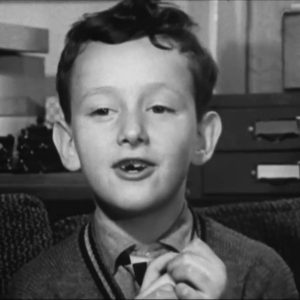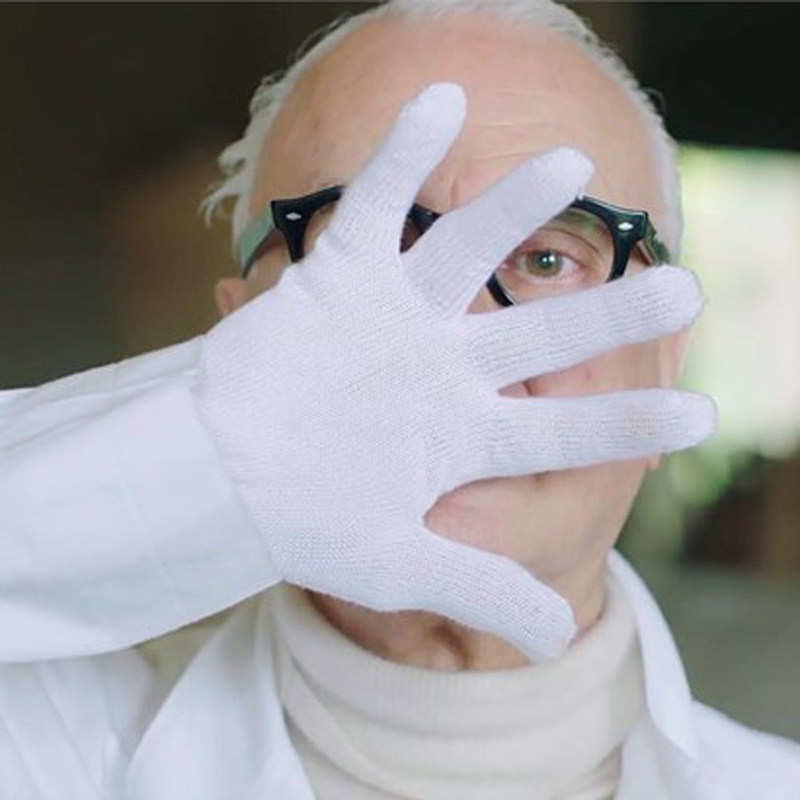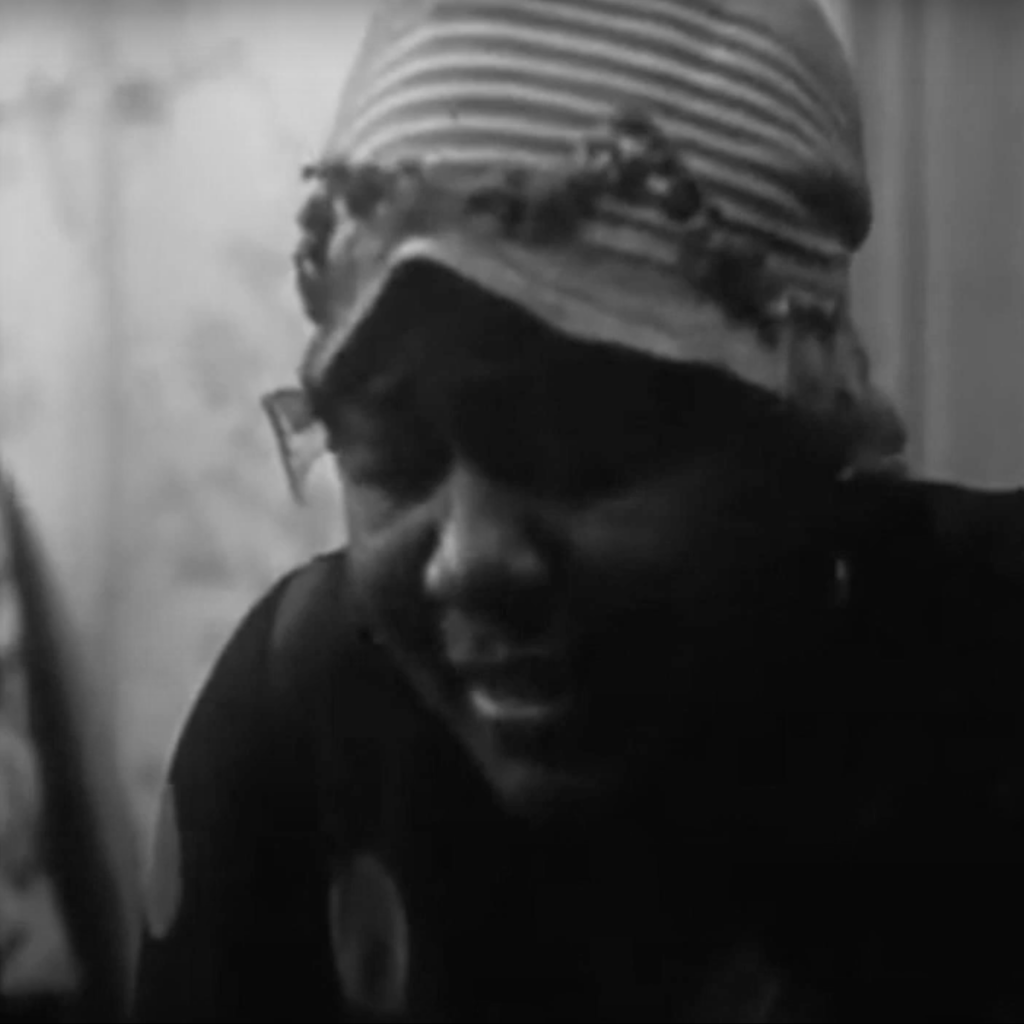Link About It: This Week’s Picks
Michael Apted’s 56-year documentary, NASA’s close-up of the sun, Harmony Korine’s experimental film and more from around the web

Michael Apted’s 56-Year Documentary Project Concludes
 With the release of Seven Up! in 1964, filmmaker Michael Apted introduced a documentary series that would become one of cinema’s most ambitious, groundbreaking and beautiful projects. Every seven years, Apted has produced an installment that follows the same 14 British people—from age seven to this year’s final installment, in which they’ve reached 63 years old. Apted (himself now 78) has recorded each session and gathered deeply personal developments, and in turn created a study on social differentiation, class structure and, honestly, humanity. Head over to The New York Times for an in-depth analysis on how the films take a look at who we are at age seven and how it correlates to who we are over half a century later.
With the release of Seven Up! in 1964, filmmaker Michael Apted introduced a documentary series that would become one of cinema’s most ambitious, groundbreaking and beautiful projects. Every seven years, Apted has produced an installment that follows the same 14 British people—from age seven to this year’s final installment, in which they’ve reached 63 years old. Apted (himself now 78) has recorded each session and gathered deeply personal developments, and in turn created a study on social differentiation, class structure and, honestly, humanity. Head over to The New York Times for an in-depth analysis on how the films take a look at who we are at age seven and how it correlates to who we are over half a century later.
Massive Attack and Manchester University Track the Music Industry’s Carbon Footprint
 Legendary Bristol-based outfit Massive Attack is turning over data from various tours and recording stints to Manchester University in the name of research. The Tyndall Centre for Climate Change Research will use the volunteered information to assess the primary sources of carbon emissions within the industry, from “band travel and production, audience transport and venue.” Massive Attack has already been attempting to offset their carbon footprint for the better part of 20 years (by planting trees and donating money) but realized that doing so created “an illusion that high-carbon activities enjoyed by wealthier individuals can continue.” With researchers, they’re working now to assess the activities and seek ways to reduce emissions altogether, directly confronting our habits once and for all. Read more at The Guardian.
Legendary Bristol-based outfit Massive Attack is turning over data from various tours and recording stints to Manchester University in the name of research. The Tyndall Centre for Climate Change Research will use the volunteered information to assess the primary sources of carbon emissions within the industry, from “band travel and production, audience transport and venue.” Massive Attack has already been attempting to offset their carbon footprint for the better part of 20 years (by planting trees and donating money) but realized that doing so created “an illusion that high-carbon activities enjoyed by wealthier individuals can continue.” With researchers, they’re working now to assess the activities and seek ways to reduce emissions altogether, directly confronting our habits once and for all. Read more at The Guardian.
DATAMONOLITH_AI Transforms The World’s Oldest Data Into a Digital Sculpture
 Currently on display as part of the Future And The Arts: AI, Robotics, Cities, Life – How Humanity Will Live Tomorrow exhibition at Tokyo’s Mori Museum, Ouchhh Studio’s digital artwork DATAMONOLITH_AI comprises three billion pixels, each projecting centuries-old data. As the name suggests, generative adversarial networks, machine learning, and AI algorithms peruse data from the ancient architectural site Göbekli Tepe (9600–7000 BC), ultimately creating an ever-changing display that translates still images into sculptural work. The result is dystopian: glitching strokes juxtapose rigid, pointed fragments of stone and sand. See a portion of the presentation at designboom—or see a 54-foot version at Intersect Festival in Las Vegas this week.
Currently on display as part of the Future And The Arts: AI, Robotics, Cities, Life – How Humanity Will Live Tomorrow exhibition at Tokyo’s Mori Museum, Ouchhh Studio’s digital artwork DATAMONOLITH_AI comprises three billion pixels, each projecting centuries-old data. As the name suggests, generative adversarial networks, machine learning, and AI algorithms peruse data from the ancient architectural site Göbekli Tepe (9600–7000 BC), ultimately creating an ever-changing display that translates still images into sculptural work. The result is dystopian: glitching strokes juxtapose rigid, pointed fragments of stone and sand. See a portion of the presentation at designboom—or see a 54-foot version at Intersect Festival in Las Vegas this week.
Harmony Korine’s Experimental Film “Duck Duck” For Gucci’s Snap Spectacles 3
 Shot using Snap’s Spectacles 3, acclaimed (and experimental) filmmaker Harmony Korine’s short “Duck Duck” takes viewers on a bonkers ride through Miami. From colorful, bulbous animal costumes to a man prowling the city on a skateboard (dressed like a hot dog), the immersive video employs several of Snapchat’s 3D effects and reality augmentation. It made its premiere during Miami Art Week in conjunction with the release of Gucci’s limited edition Spectacles 3, designed by Korine, as well. The cult filmmakers unbridled vision emphasizes the value of spontaneous storytelling and the capabilities of wearable cinematic tools. See the video on YouTube now.
Shot using Snap’s Spectacles 3, acclaimed (and experimental) filmmaker Harmony Korine’s short “Duck Duck” takes viewers on a bonkers ride through Miami. From colorful, bulbous animal costumes to a man prowling the city on a skateboard (dressed like a hot dog), the immersive video employs several of Snapchat’s 3D effects and reality augmentation. It made its premiere during Miami Art Week in conjunction with the release of Gucci’s limited edition Spectacles 3, designed by Korine, as well. The cult filmmakers unbridled vision emphasizes the value of spontaneous storytelling and the capabilities of wearable cinematic tools. See the video on YouTube now.
NASA’s Up-Close Survey of the Sun
 One may think our Sun gets overlooked by the brightest minds in space-related matters for more glamorous studies like visiting or inhabiting other planets—but, according to NASA, this isn’t so. A key point of scientific consideration has become: what causes the Sun’s flare ups? Also, why is the atmospheric aura around it—known as the Corona—hotter than its true surface? An unmanned spacecraft named Parker has been circling the star for years, and will eventually meet its demise via fiery impact. But before it crashes, NASA hopes it can relay even more new information from close-up. Read more about the potential discoveries at The Atlantic.
One may think our Sun gets overlooked by the brightest minds in space-related matters for more glamorous studies like visiting or inhabiting other planets—but, according to NASA, this isn’t so. A key point of scientific consideration has become: what causes the Sun’s flare ups? Also, why is the atmospheric aura around it—known as the Corona—hotter than its true surface? An unmanned spacecraft named Parker has been circling the star for years, and will eventually meet its demise via fiery impact. But before it crashes, NASA hopes it can relay even more new information from close-up. Read more about the potential discoveries at The Atlantic.
Link About It is our filtered look at the web, shared daily in Link and on social media, and rounded up every Saturday morning.












